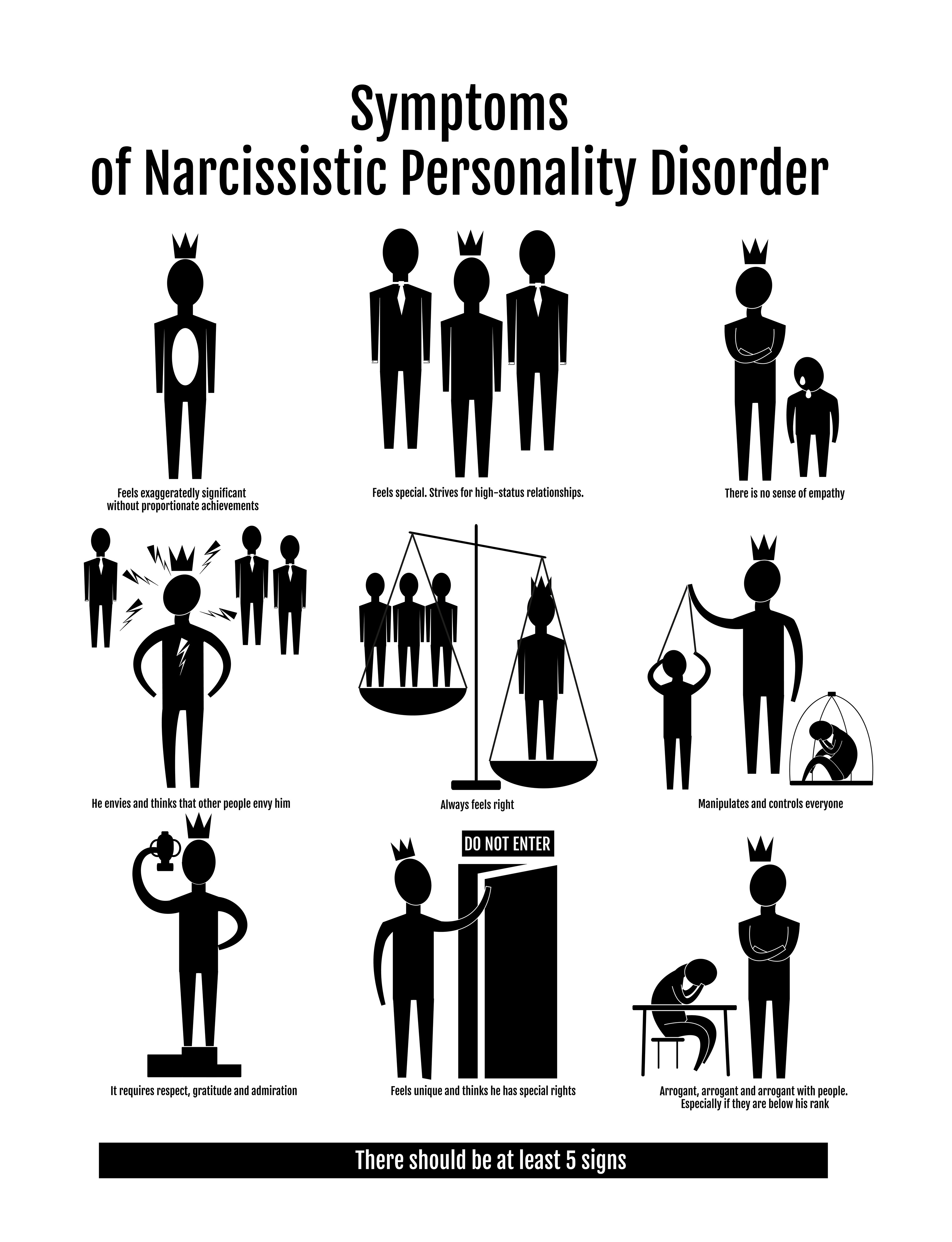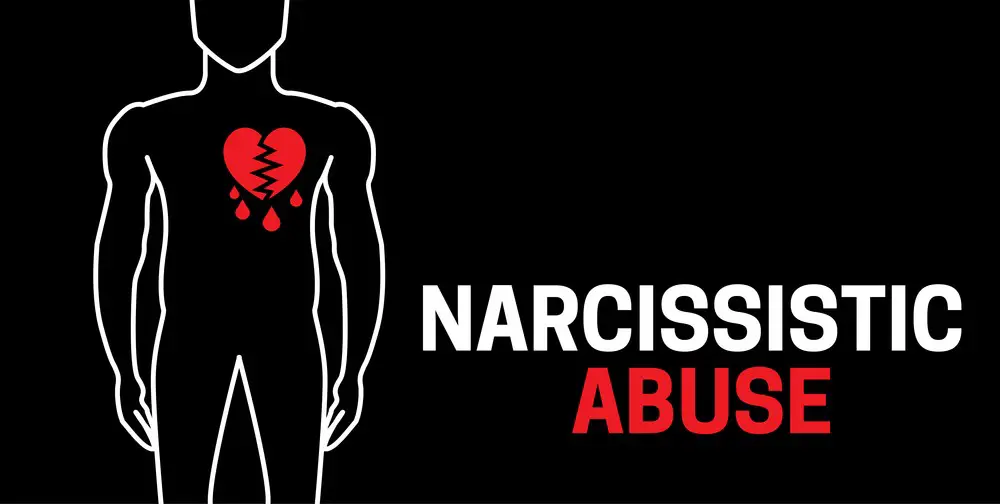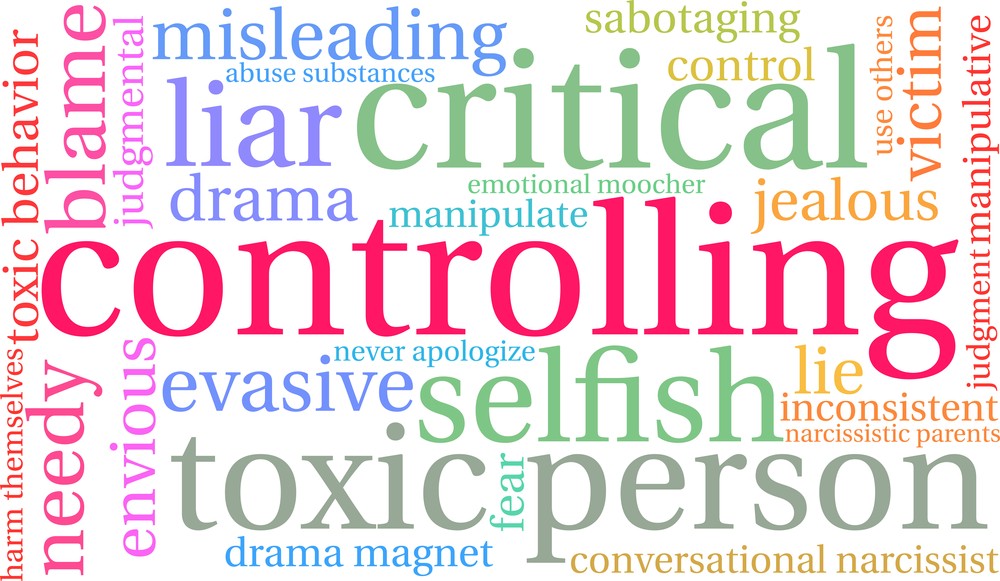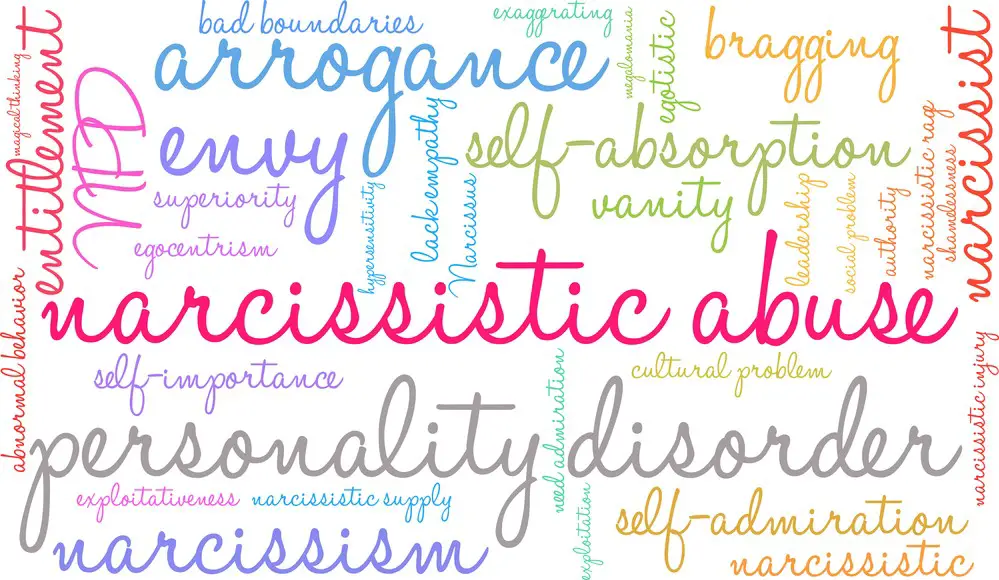The narcissist’s prayer is often used to describe the manipulation and gaslighting techniques employed by individuals with narcissistic tendencies. This concept has gained recognition as more and more individuals become aware of the damaging effects of narcissistic abuse in romantic and platonic relationships. The narcissist’s prayer exemplifies the narcissist’s unwillingness to take responsibility for their actions and their propensity to shift blame onto others.
Understanding the concept of the narcissist’s prayer is essential in recognizing the characteristics and behaviors of a person with narcissistic traits. By delving into the intricacies of prayer, we can better comprehend the underlying motivations and manipulation techniques used by narcissistic individuals. This exploration will provide valuable insight into dealing with a narcissist, assisting in recovering from narcissistic abuse, and empowering individuals to develop healthier relationships.
Key Takeaways
- The narcissist’s prayer highlights manipulation techniques used by individuals with narcissistic traits.
- Recognizing the prayer can help identify narcissistic behaviors in relationships and promote recovery from abuse.
- Understanding the narcissist’s prayer equips individuals with the knowledge needed for healthier relationship dynamics.

Understanding Narcissism
Defining Narcissism
Narcissism is a term used to describe the traits of self-centeredness, self-absorption, and a sense of superiority or grandiosity. Often associated with an inflated sense of self-worth, narcissists typically have difficulty empathizing with others and can be manipulative in their relationships. While some degree of self-centeredness is common in people, extreme levels of narcissism can become destructive and harmful to the narcissist and the people around them.
Narcissistic Personality Disorder
Narcissistic Personality Disorder (NPD) is a specific personality disorder characterized by persistent and pervasive grandiosity, self-centeredness, and a lack of empathy. The main features of NPD include:
- A constant need for admiration and validation
- An exaggerated sense of self-importance
- Exploitative behavior in interpersonal relationships
- Difficulty recognizing the needs and feelings of others
People with NPD often cannot form genuine, deep connections with others and can experience significant distress when faced with criticism or perceived rejection. It is important to recognize that NPD is a diagnosed mental health disorder, and not all individuals exhibiting narcissistic traits necessarily have this disorder. A complex interplay of heritable, environmental, and psychological factors can influence the development of NPD.
It is crucial to approach the topic of narcissism and NPD with a confident, knowledgeable, and neutral tone, as understanding the complexities of these issues is paramount to addressing them effectively. By doing so, we can facilitate a better understanding of the impact that narcissism and NPD can have on individuals and their relationships with others.
 Traits and Behaviors of a Narcissist
Traits and Behaviors of a Narcissist
Entitlement and Arrogance
Narcissists often exhibit a strong sense of entitlement, believing that they deserve special treatment and consideration. This entitlement fuels their arrogance, as they believe they are superior to others. They may frequently engage in selfish behavior, prioritizing their own needs and desires above those of others.
Focus on Admiration
A common trait among narcissists is their constant need for attention and admiration. They crave validation and praise from those around them and may resort to manipulation to gain it. This need for admiration can be seen through various narcissistic behaviors, such as boasting, exaggerating their accomplishments, and seeking out environments where they are the center of attention.
Sensitivity and Lack of Empathy
Narcissists tend to be highly sensitive to criticism, often reacting with anger, defensiveness, or blame-shifting. They often refuse to take accountability for their actions, and their lack of empathy for others contributes to this reluctance to accept responsibility. Narcissists may also engage in invalidation, a form of emotional manipulation where they undermine or dismiss the feelings and opinions of others.
Abuse and Control
Narcissistic abuse can manifest in various forms, including emotional, psychological, and sometimes physical abuse. They often control or manipulate their relationships, maintaining power by undermining their partner’s self-worth and autonomy. This may involve gaslighting, where the narcissist deliberately makes the victim doubt their perception of reality.
Narcissists may also engage in more subtle forms of abuse. This can include passive-aggressive behavior, silent treatment, or other tactics to punish the target without overt aggression. In all cases, the narcissist’s primary goal is to maintain control over their victim to validate their self-importance.
 The Narcissist’s Prayer
The Narcissist’s Prayer
Breaking Down the Prayer
The Narcissist’s Prayer, often viewed as a representation of narcissistic behavior, seeks to highlight the denial, illogical arguments, and avoidance of accountability frequently exhibited by individuals with narcissistic tendencies. This brief poem proceeds as follows:
That didn’t happen. And if it did, it wasn’t that bad. And if it was, that’s not a big deal. And if it is, that’s not my fault. And if it was, I didn’t mean it. And if I did… You deserved it.
Within this prayer, narcissist distances themselves from any potential sin or fault. Initially, the individual denies the truth of the negative action. As the prayer unfolds, various defensive layers come into play—minimizing the act’s impact, disputing its relevance, and ultimately turning the blame onto the recipient of the hurtful behavior.
Application in Narcissistic Behavior
The Narcissist’s Prayer demonstrates various tactics used by narcissists to deflect responsibility for their actions:
- Denial: The individual outright denies the event took place, invalidating the other person’s experience or emotions.
- Minimization: If it did happen, the narcissist downplays its significance, conveying that the issue is exaggerated or inconsequential.
- Deflection: Responsibility is shifted away from the narcissist, pointing to external factors or blaming the person affected by the behavior.
- Rationalization: The narcissist may provide illogical arguments to justify their actions and diminish their culpability.
- Victim-blaming: In the final stage of the prayer, the narcissist turns the tables, implying that the hurt person deserved the adverse treatment.
In summary, the Narcissist’s Prayer unveils the defensive strategies and emotional manipulation used by narcissists to protect themselves from accountability and maintain control over their relationships. Understanding this poem provides valuable insight into the thought processes and tactics behind narcissistic behavior.
 Effects on Relationships
Effects on Relationships
The Narcissist’s Friends and Family
Narcissists often focus on themselves in relationships, making it challenging for their friends and family. They usually struggle to empathize with others, resulting in strained relationships. Friends and family of a narcissist may feel neglected or undervalued as the narcissist tends to prioritize their needs above everyone else’s. Since narcissists may have difficulty recognizing their shortcomings, friends, and family might find it challenging to address such issues, leading to frustration and misunderstandings.
Marriage and Narcissism
Marriage with a narcissist can be extremely difficult. The narcissistic partner may often focus on their needs, disregarding the needs of their spouse. This could result in an imbalance of power and a lack of emotional support, causing one partner to feel overwhelmed and unsupported. The narcissist’s inability to effectively communicate and empathize with their spouse can cause conflicts to escalate, stifling healthy resolutions. Consequently, marriages with a narcissistic partner may face instability and dissatisfaction.
Narcissism and Children
Narcissism can also have significant effects on children. Narcissistic parents tend to put their needs above their children’s, often focusing on their success and image rather than the child’s well-being. As a result, children may feel unimportant and unloved. Additionally, narcissistic parents might pressure their children to meet unrealistic expectations, leading to feelings of inadequacy and failure. Such parenting may also hinder a child’s ability to form healthy relationships later in life due to their distorted perception of how relationships should function.
 Narcissistic Manipulation Techniques
Narcissistic Manipulation Techniques
Gaslighting
Gaslighting is a manipulation tactic used by narcissists to create doubt in the victim’s mind. It involves presenting false or misleading information to make the person question their memory, perception, or sanity. The narcissist may deny or twist events to confuse the victim, ultimately leading them to doubt their own experiences. By eroding the trust in one’s thoughts, the narcissist gains control over the victim’s reality, exerting their influence more easily.
Blame Shifting
Blame shifting is another common manipulation technique used by narcissists. Through this method, the narcissist avoids taking responsibility for their actions or behavior by deflecting it onto someone else. This can be done by minimizing their role in a situation, exaggerating the other person’s faults, or outright lying. By diverting the focus from their negative actions, narcissists successfully shift the blame and make the victim feel responsible or guilty.
Minimizing
Minimizing is a manipulation tactic where the narcissist trivializes the victim’s feelings, thoughts, or problems. They may dismiss the victim’s concerns as unimportant, irrelevant, or exaggerated. This behavior can range from brushing off a serious issue as a minor inconvenience to denying the problem’s existence. Minimizing is often used to invalidate the victim’s emotions and experiences, which allows the narcissist to maintain control over the situation.
Projection
Projection is a defense mechanism narcissists use to project their negative qualities onto others. They may accuse the victim of possessing the same undesirable traits or behaviors that they exhibit. By doing so, the narcissist creates a smokescreen, diverting attention away from their flaws while blaming the victim. Projection also helps narcissists feel justified in their actions and maintain their self-image as being blameless and superior.
 Dealing with a Narcissist
Dealing with a Narcissist
Recognizing Narcissistic Behavior
Dealing with a narcissist requires first acknowledging and recognizing their behavior patterns. Narcissistic individuals tend to display an inflated sense of self-importance, an excessive need for admiration, and a lack of empathy for others. They may respond to questions or concerns with defensiveness and show reluctance to accept responsibility for their actions, often resorting to manipulation and blame-shifting.
Guidance and Support
When confronted with such behavior, seeking appropriate guidance is essential. This support may come from therapy, self-help resources, or consulting experienced professionals. Needing assistance to navigate and deal with a narcissist’s behavior is natural and demonstrates wisdom and strength.
A network of friends, family, or support groups can also provide invaluable emotional support and a safe space to share experiences and gain insight from others in similar situations.
Setting Boundaries
Establishing clear boundaries is crucial when dealing with someone who exhibits narcissistic tendencies. Setting boundaries can involve limiting contact or communication, determining unacceptable behaviors, and prioritizing personal values and well-being. Be prepared for resistance from the narcissist, who might become upset or challenge these boundaries.
It is important to maintain these boundaries and stay consistent and firm in enforcing them without getting drawn into arguments or emotionally charged discussions that may derail one’s resolve.
Implementing these steps can make dealing with narcissistic individuals more manageable. By recognizing the behavior, seeking guidance and support, and establishing clear boundaries, one increases their capacity to navigate and cope with narcissists effectively.

Recovery from Narcissistic Abuse
Confronting the Harm
Recovering from narcissistic abuse begins with confronting the harm caused by the narcissist. Victims must acknowledge the abuse’s consequences and accept their healing responsibility. This involves understanding how the narcissist manipulated them and recognizing the behavior patterns.
Healing Trauma
Healing the trauma inflicted by a narcissist is a crucial step in the recovery process. Victims should seek professional help, such as therapy or support groups, to address their emotional wounds. Therapists can help identify triggers resulting from the abuse and provide tools to manage them. It’s also essential for victims to practice self-care and establish healthy boundaries with others. This may include:
- Physical self-care: Regular exercise, sleep well, and a healthy diet.
- Emotional self-care: Expressing emotions, fostering positive relationships, and practicing mindfulness.
- Mental self-care: Challenging negative thought patterns, setting attainable goals, and practicing self-compassion.
Fostering Authenticity
The final step in recovering from narcissistic abuse is fostering authenticity in oneself. This means embracing one’s true self without the need for external validation. Developing authenticity can help victims break free from narcissists’ influence and regain their sense of self. Important aspects of fostering authenticity include:
- Curing the emotional wounds: To be authentic, one must first address the lingering effects of the abuse and work towards healing.
- Forgiving oneself and others: Forgiveness helps to let go of resentment and allows for growth and self-improvement.
- Embracing grace: Rather than being consumed by bitterness, choosing grace enables a healthier mindset for healing.
In conclusion, recovering from narcissistic abuse is a multifaceted process that involves confronting the harm, healing the trauma, and fostering authenticity. Victims can regain their sense of self and emerge stronger with the right support and a commitment to self-care.
Frequently Asked Questions
What is the origin of the narcissist prayer?
The narcissist prayer is a brief poem highlighting the common traits of narcissistic behavior. Its origin is unknown, but it gained popularity online in various forums and blogs discussing narcissism and abusive relationships. The poem encapsulates the various forms of manipulation, denial, and blame-shifting often employed by narcissists.
How does the poem relate to narcissistic behavior?
The narcissist prayer reflects the thought patterns, behaviors, and rationalizations often demonstrated by people with narcissistic personality traits. The poem’s content captures the core aspects of narcissism, such as a lack of empathy, grandiosity, manipulation, and a need for power and control, illustrating how a narcissist reacts when confronted with their actions.
Can the prayer be used for self-reflection?
The narcissist prayer can indeed be a valuable tool for self-reflection and growth. By examining the poem and recognizing any patterns or similarities within one’s behaviors, an individual may gain insight into potentially harmful or narcissistic tendencies. Reflection on the poem can help foster self-awareness, leading to personal development and healthier relationships.
What is the connection between narcissism and empaths?
Narcissism and empaths often have an unfortunate attraction to one another. Empaths are individuals who can sense and absorb the emotions of others, often putting others’ needs above their own. Narcissists can exploit the empath’s compassionate nature to their advantage, as empaths often seek to help and heal others. This dynamic can create a toxic, one-sided relationship, with the empath’s emotional needs consistently going unmet.
How does religion view narcissistic behavior?
Various religious texts and teachings often discourage narcissistic behavior. For example, in Christianity, pride and self-centeredness are considered sinful, while humility and service to others are virtues. Similarly, Buddhism promotes selflessness and detachment from the ego. Although interpretations may vary, most religious beliefs advocate for empathy, compassion, and caring for others, which are the antithesis of narcissistic behavior.
Are there any famous narcissist prayers in literature?
While the narcissist prayer itself may not have direct literary counterparts, many works of literature feature characters displaying prominent narcissistic traits. These characters often act as cautionary examples within the story or challenge the protagonist to overcome. Examples include Shakespeare’s Iago from “Othello” and F. Scott Fitzgerald’s Tom Buchanan from “The Great Gatsby.” However, these characters are not typically associated with specific prayers or verses embodying their narcissism.
As someone who has experienced the effects of narcissism in a difficult custody battle, I understand the importance of recognizing the manipulative tactics of narcissists, including the “Narcissist’s Prayer.” While I take Lexapro to manage my mental health, I’ve also learned strategies for dealing with narcissistic behavior and protecting myself and my children from its harmful effects.
Despite the challenges posed by my ex-partner’s severe narcissism and her complete alienation from our children and her disregard for court orders, I remain committed to fighting for their well-being and managing my mental health. I take long walks daily to clear my head and focus on what’s important.
To provide support and guidance to others who may be facing similar challenges, I write articles about mental health and narcissism. I also have a legal site where I help others dealing with a spouse who refuses to comply with court orders and weaponizes their children rather than co-parenting. I hope to provide resources and strategies for dealing with narcissistic individuals and navigating difficult relationships, whether it be through legal action or personal growth and healing. With the right support and resources, anyone can overcome their mental health challenges and find a path toward healing and recovery.
- New Florida Law Cracks Down on Misuse of Emotional Support Animals - February 12, 2024
- The Stress-Free Path to Mastering Conversations: Essential Techniques Unveiled - February 12, 2024
- The Burnout Epidemic: Why We’re All Feeling Overwhelmed and How to Cope - February 9, 2024
This site contains affiliate links to products. We will receive a commission for purchases made through these links.


 Traits and Behaviors of a Narcissist
Traits and Behaviors of a Narcissist
 The Narcissist’s Prayer
The Narcissist’s Prayer Effects on Relationships
Effects on Relationships Narcissistic Manipulation Techniques
Narcissistic Manipulation Techniques Dealing with a Narcissist
Dealing with a Narcissist

